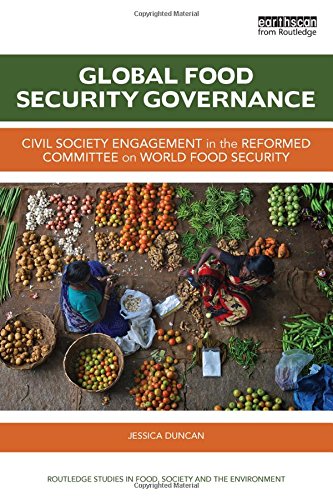

Most ebook files are in PDF format, so you can easily read them using various software such as Foxit Reader or directly on the Google Chrome browser.
Some ebook files are released by publishers in other formats such as .awz, .mobi, .epub, .fb2, etc. You may need to install specific software to read these formats on mobile/PC, such as Calibre.
Please read the tutorial at this link: https://ebookbell.com/faq
We offer FREE conversion to the popular formats you request; however, this may take some time. Therefore, right after payment, please email us, and we will try to provide the service as quickly as possible.
For some exceptional file formats or broken links (if any), please refrain from opening any disputes. Instead, email us first, and we will try to assist within a maximum of 6 hours.
EbookBell Team

4.7
96 reviewsIn 2007/8 world food prices spiked and global economic crisis set in, leaving hundreds of millions of people unable to access adequate food. The international reaction was swift. In a bid for leadership, the 123 member countries of the United Nations’ Committee on World Food Security (CFS) adopted a series of reforms with the aim of becoming the foremost international, inclusive and intergovernmental platform for food security. Central to the reform was the inclusion of participants (including civil society and the private sector) across all activities of the Committee.
Drawing on data collected from policy documents, interviews and participant observation, this book examines the re-organization and functioning of a UN Committee that is coming to be known as a best practice in global governance. Framed by key challenges that plague global governance, the impact and implication of increased civil society engagement are examined by tracing policy negotiations within the CFS, in particular, policy roundtables on smallholder sensitive investment and food price volatility and negotiations on the Voluntary Guidelines on the Responsible Governance of Tenure of Land, Fisheries and Forests in the Context of National Food Security, and the Global Strategic Framework for Food Security and Nutrition.
The author shows that through their participation in the Committee, civil society actors are influencing policy outcomes. Yet analysis also reveals that the CFS is being undermined by other actors seeking to gain and maintain influence at the global level. By way of this analysis, this book provides empirically-informed insights into increased participation in global governance processes.